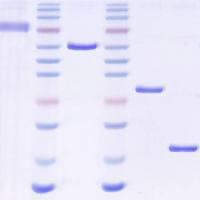Methods to Examine the Impact of Nonsynonymous SNPs on Protein Degradation and Function of Human ABC Transporter
互联网
互联网
相关产品推荐

Danio rerio (Zebrafish)impact zgc:103672重组蛋白表达
¥2000

HB Western blotting Principles and Methods
¥223

Coronavirus Nucleocapsid重组蛋白|Recombinant SARS-CoV-2 Nucleocapsid-AVI&His recombinant Protein,Biotinylated
¥4520

ITGAL/ITGAL蛋白Recombinant Human Integrin alpha-L (ITGAL)重组蛋白CD11 antigen-like family member A;Leukocyte adhesion glycoprotein LFA-1 alpha chain;LFA-1A;Leukocyte function-associated molecule 1 alpha chain;CD antigen CD11a蛋白
¥2376

IL-2重组蛋白|Recombinant Human IL2 Protein
¥1080
相关问答

